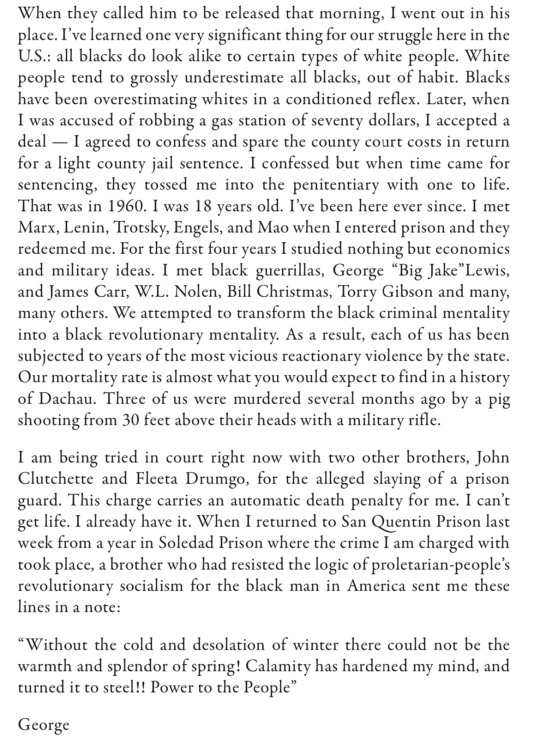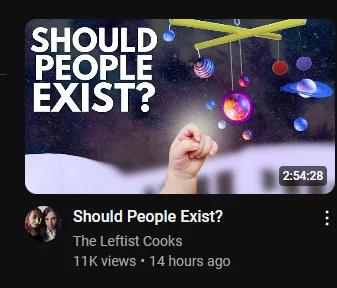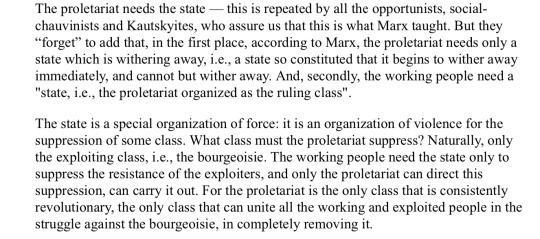#reading marx and lenin
Explore tagged Tumblr posts
Note
What’s you’re thoughts on Rosa Luxemburg, trots and leftcoms often like to paint her as some sort of “anti tankie hero” but when reading her works and learning about her I don’t think that’s true.
i havent actually read enough of her works to make any intelligent judgment on that yet. but from experience with trots and leftcoms (and honestly a lot of other groups too) there is often a bit of a glorification and white washing going on with communists who were killed before they held any positions of power. because its very easy to project your own views onto someone who died young and fantasize about the great leader they *would* have been. again idk about rosa specifically but in general, if someone only ever talks positively of people who were killed early on, while at the same time only ever criticizing the communists who actually held power (stalin, mao, castro, etc) it probably says more about that person and their own views which they are projecting onto their favorite martyr
mutuals who are more knowledgable about rosa luxemburg feel free to chime in and correct me
#this is less of an intelligent answer and more me just rambling#ive been getting quite a few asks recently asking for opinions or even advice#and while i appreciate it im actually still fairly early on in my own studies and have mostly just been focusing on#reading marx and lenin#so yeah dont take this as some kind of. important opinion lmao#youre probably more educated on this than me
55 notes
·
View notes
Text
It's not a true socialist utopia until americans are hunted for sport
#us politics#politics#social justice#socialism#true socialism#america#social commentary#utopia#amerikkracker#cracker discourse#truth#progressivism#donald trump#trump#maga#liberalism#death to america#marx wants this#I♥️stalin#anarcho communism#communism#let girls have fun#fun#theory#read theory#real socialism#utopian socialism#marxism#marxism leninism#egoism
23 notes
·
View notes
Text
IT'S TIME FOR LEFTOID FAMILY FEUD! The first question is: Name a blatantly Anti-Marxist take that "Marxist-Leninists" can't stop repeating:
1. "As Leninists we understand the importance of the anti-imperialist struggle. Therefore, *blatant Kautskyism*
2. I hate social democrats! Also the country with the world's most important market economy is socialist because the capitalists are under control of the state.
3. There are times when it's acceptable for Communists to ally with the national bourgeoisie for strategic reasons, like when we tried it with Chiang Kai-shek, Suharto, and Saddam Hussein and nothing bad happened to us at all.
4. *The incomprehensible foamy-mouthed gibberish that comes out whenever Trotsky is even mentioned* (although tbh I kinda get why people who spend all their time arguing with Trotskyists would become so neurotic)
5. I'm a Marxist-Leninist.
6. Asking people to read theory is classist because the proles are a bunch of unwashed fucking morons.
#meme#shitposting#leftism#leftoid#marxism#marxism-leninism#anti-imperialism#china#indonesia#iraq#trotsky#classism#anti intellectualism#leftcom#left communism#when I'm in a not reading marx or lenin competition and my opponent is a Marxist-Leninist
13 notes
·
View notes
Text

soledad brother: the prison letters of george jackson
#op#ngl i read the quote 'i met marx lenin trotsky engels and mao when i entered prison and they redeemed me' and almost started crying
25 notes
·
View notes
Text
to be fair I am a piss poor communist
#reading marx and lenin and mao hard#because me stupid#i had a couple days off i went to the park i could have easily put on an audiobook or something#but no i just looked for Miku pictures#need someone to force me to read theory at gunpoint
32 notes
·
View notes
Text
Catholic Cultural Criticism
Have you noticed how society just isn't Catholic anymore? Nobody takes the authority of the Church seriously or internalizes any of our morals! You know where it all went wrong? When people abandoned Catholicism. What is the solution? Why you'll never guess--
#if only Christ had returned when Aquinas published Summa Theologica#and spared us this painful thousand year decline#this post is for me you can just keep scrolling#ah but Ivan be gracious#when you were surrounded by Marxists they all wrote the same book over and over#Protestants have Luther and Lewis#Catholics have Aquinas and Chesterton#Marxists have Marx and Lenin#and so it goes#you yourself at the mainline Protestant liberal college had to read Locke’s second treatise three times
17 notes
·
View notes
Text
Its insane that certain self proclaimed “marxists” insist that Lenin differed from Marx and think it is weird for you to maintain that Marx and Lenin actually agree entirely.
Where Marx pointed out the growing international connections Lenin followed his analysis and completed it.
Where Marx developed his theory of the revolutionary dictatorship of the proletariat and the theory of lower and higher communism over his lifetime Lenin maintained his analysis against anarchistic slander in S&R.
That is what state and revolution is, it is a maintaining of continuity with Marx’s understanding of the process of revolution and development of socialism it is not a new theory. It has never been a new theory.
6 notes
·
View notes
Text
(business) days til i finally leave my job: 24/48. 50%. we're half way there lads.
i had a chat a few days ago with a senior python guy who sits 4 desks down from me. he mentioned that he doesn't have to do much anymore because he mostly just supervises the india team now. why is the india team supervised by some english guy instead of someone in india? you know why.
he explained to me why we work from home 80% of the time, and in a nice, large, heated, almost empty office otherwise. why he gets paid enough to comfortably support 5 kids in a major city without actually having to do much.
the inefficiency and comfort of our european branch is subsidised by the exploitation of the teams in india and south america, and, to a lesser degree, the US. these other workers work longer hours doing harder shit for less pay and no benefits. we, a country with free healthcare, get company-guaranteed free access to private healthcare, whereas the people in countries without free healthcare get fuck all. because those places are valuable to corporations like mine in the first place because they didn't have (successful) labour rights movements*, and it just so happens that the people fighting for your national political rights tend to be the same people who are fighting for rights within the workplace.
we in europe are only employed because the company needs 1) respectable (read: white, english/french/german speaking) people to host meetings and respond to emails in the wealthy clients' time zones, and 2) people to groom for management and senior positions.
i'm in the process of leaving the job to go back into science for half the pay, worse hours, fewer benefits, and much harder work. somehow, i still feel like i'll be better off.
#read david graeber's bullshit jobs. it exists as a shorter article too if the book is a bit much for you rn#i mean the other resource to understand this sort of phenomenon is marx and lenin lmao‚ but thats almost always true#finance job tag
6 notes
·
View notes
Text
okay im trying to do a more systematic reading of theory, instead of the utter chaos of "reading whatever falls into my hands" starting by revisiting marx. and then continuing with the rest of the first international. this is going to take so long. this summer is gonna be marx summer though.
#specially since km interested in more current shit#but no i gotta get over three whole internationals first#then a lot of shit about the ussr#then we can go for the current stuff#unless i decide on maoism first#bro this is going to take me ages can the spirit of marx posses me or something like#i want whatever he was on when he was writing thr London notebooks during the 1850s#redmaxxing#also my ideology has changed so much in the past few months purely because#i shut up and read#im sorry lenin i can't believe i said that about you#i still think you're a bit weird though but who isn't
4 notes
·
View notes
Text
Need to actually read Das Capital at some point so all the commies can't just dunk on me for not having read theory
#I have read some Marx/Engels/Lenin/etc. but it's a pretty big omission#it's long and dense and I have a lot of stuff on my tbr okay#I mean hey you never know maybe it will be the thing that wins me over#(commies is meant endearingly (mostly))
2 notes
·
View notes
Text
this feels like some weird GMIL comic

4 notes
·
View notes
Text
Okay yall, time to start reading Lenin’s The State and Revolution. This text was published in 1917, but written shortly before during Lenin’s exile in Switzerland. It serves as a valuable look at what Lenin believed going into the October Revolution and formation of the Soviet Union; with which we can compare the outcome and begin to see what worked and what didnt.
Lets start with this passage from Chapter 2, section 1. The Eve of Revolution

So the first thing to consider is Lenin’s use of the word “state” here. In a colloquial sense, the word state tends to refer to any government, but Lenin wants us to understand how he views Marx’s use of state when he refers to communism as a “classless, stateless, society.”
To Lenin, the state as it exists is a function of the owning class, and only serves the function of maintaining the working class in a state of subservience. When he talks about the state, he’s referring to Monarchist and Liberal governments that want to help the capitalist extract as much wealth as they can from the workers. To Lenin, the state as it currently exists cannot be made to function for the benefit of the working class because it is always a function of the owning class. It must, therefore, be replaced with a socialist state that is a function of the working class instead of the owning class.
The key thing that Lenin wants to communicate here is that the state only exists to oppress and restrict classes of people. He believes that the only good state would be one that is able to prevent the owning class from recovering their power, and once they’re removed from any ability to use their ownership to regain power, then the state, as an oppressive body, is no longer needed.
#i think this is an interesting way to frame the discussion of state#because ik when i came in i really misunderstood the idea of a stateless society#but Lenin and Marx both describe a transition from socialist to communist societies#and for both it kinda comes out of the idea of popular support once people see how they are being benefited#ANYWAYS if ur reading this lmk what u think#i want this to be a more open discussion where we can ask each other questions or air out doubts
4 notes
·
View notes
Text
as a non-Black marxist i have zero qualms about saying to the other non-Black marxists on here — get over yourselves. it's not "idpol" or "fed behavior" to call out anti-Blackness and chauvinism in leftist spaces and yes, marxist spaces. in fact it's incredibly common for Black people who raises points about anti-Blackness in leftist spaces to be fedjacketed.
you guys forget about the contradiction of colonialism in favor of class reductionism almost everywhere except Palestine it seems. also maybe read about New Afrikan revolutionary nationalism and 4th world theory before spouting shit about how Black people in the american settler-colony are part of the Global North or whatever. if marxism is a science then we should be consistently reading Black theorists.
you are not "advancing marxism" by refusing to recognize these contradictions, and you definitely aren't doing it by fedjacketing Black leftists. you're just being incredibly anti-Black.
#also to the 'but i don't entertain bourgeois theorists' idea — you guys know that mao read more than just marx and lenin. right.#not to mention the plethora of Black marxist thinkers (besides fanon)#marxism is not when you only read the 'canon' of marxist thinkers#Black followers please feel free to correct me or tell me to delete this if you feel i've overstepped or said something anti-Black#i still have a lot of learning and unlearning to do#my text#i also need to read way more i have so many books on my reading list#black marxism is up next after i finish my lenin
7 notes
·
View notes
Text
I hate petty bourgeois mfs so much it's unreal
Anyway I'll probably work in data entry again smh bc mfs want me to do that and I need extra money fuck
#im a communist#goodbye#commodity fetishism is shit#please read just a little bit of marx and other marxist adjacent and decolonial theorists#and even a bit of lenin#and other mfs that are smart#wilhelm reich and freudo Marxians too#critical theory isnt bad#be so ffr tho capitalism in its current iteration is complex and incredibly difficult to understand bc its origins are obscured#dont buy into bourgeois ideology#study the origins of capital and capitalism#and critique them endlessly#do not contribute to the destruction of the earth#we have freedom to choose#anyway
2 notes
·
View notes
Text

“kys loser plus my bf has a gun”
#he would NOT fucking say that#he’d say something like#your ideas on communism (and marxism-leninism) are reductionary - you are a revisionary. read marx#but this is funnier#ancom.txt#left unity
8 notes
·
View notes
Text
i feel like i have like quarter read a lot of theory which of course means i have read no theory
#im so sorry the only shit ive read fully is like not captial but a bunch of other stuff marx and engels have written#i really need to read fanon#and lenin also#and probably should read mao as well#and also i want to read mark fisher as well
4 notes
·
View notes